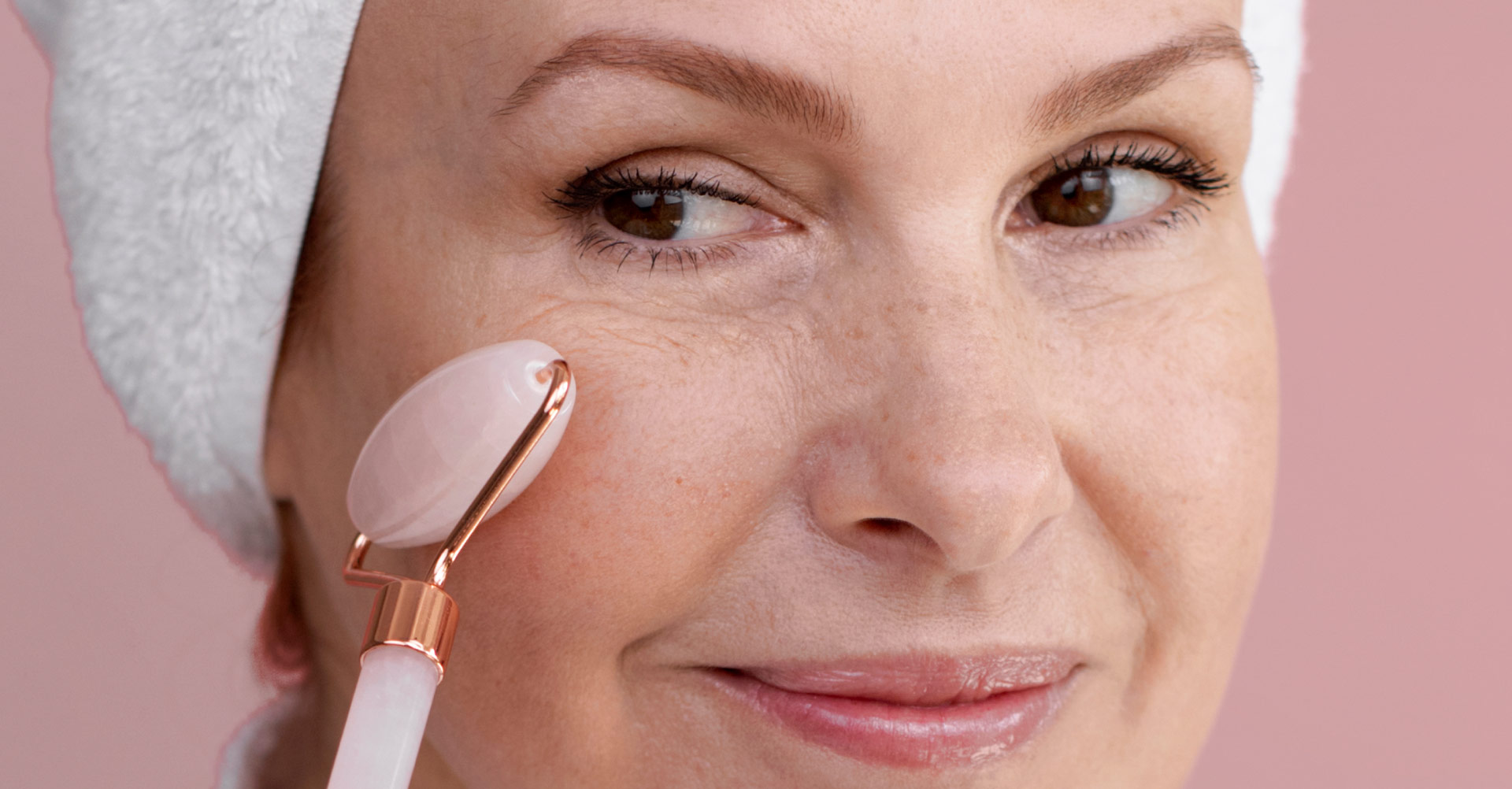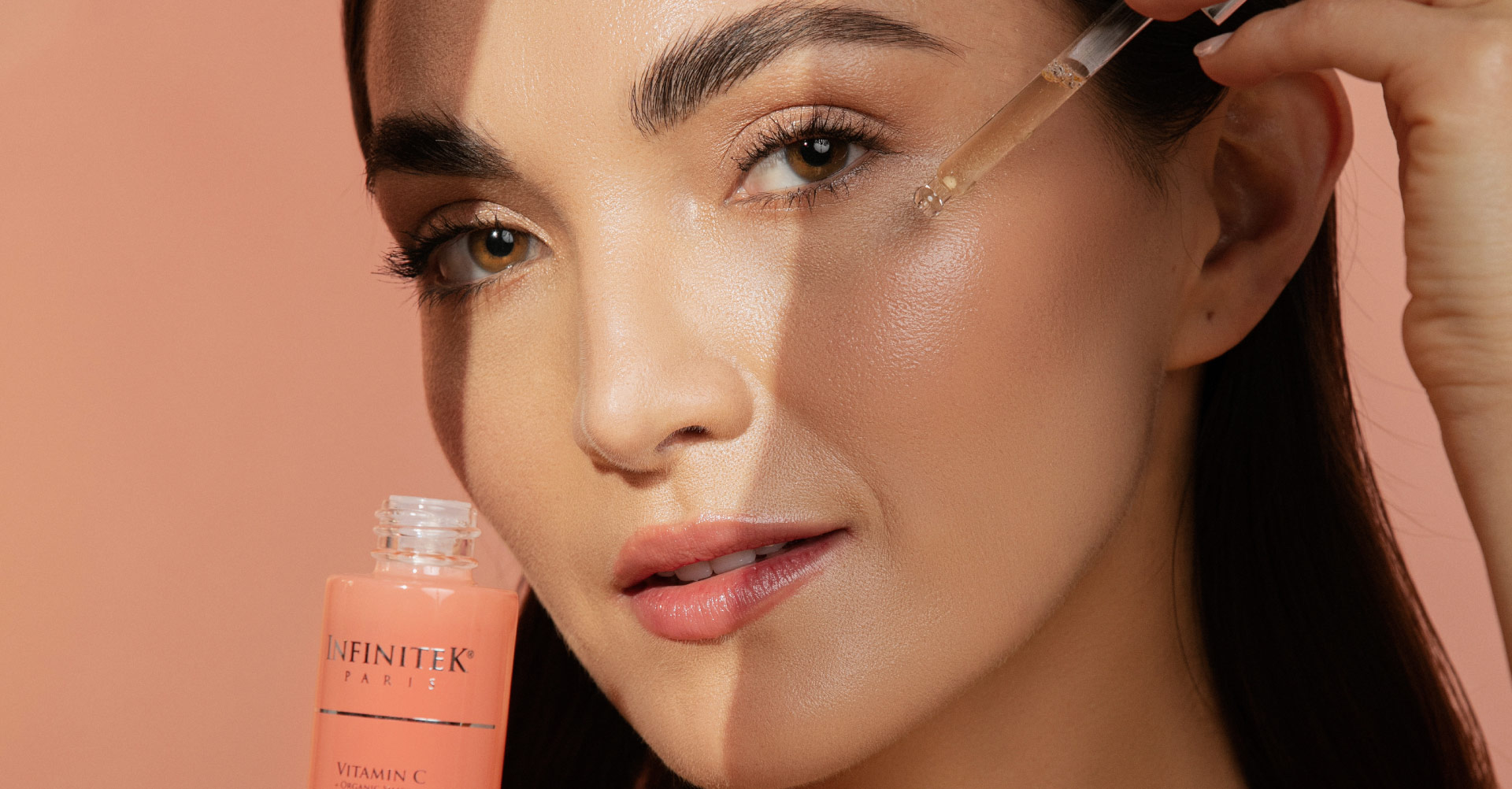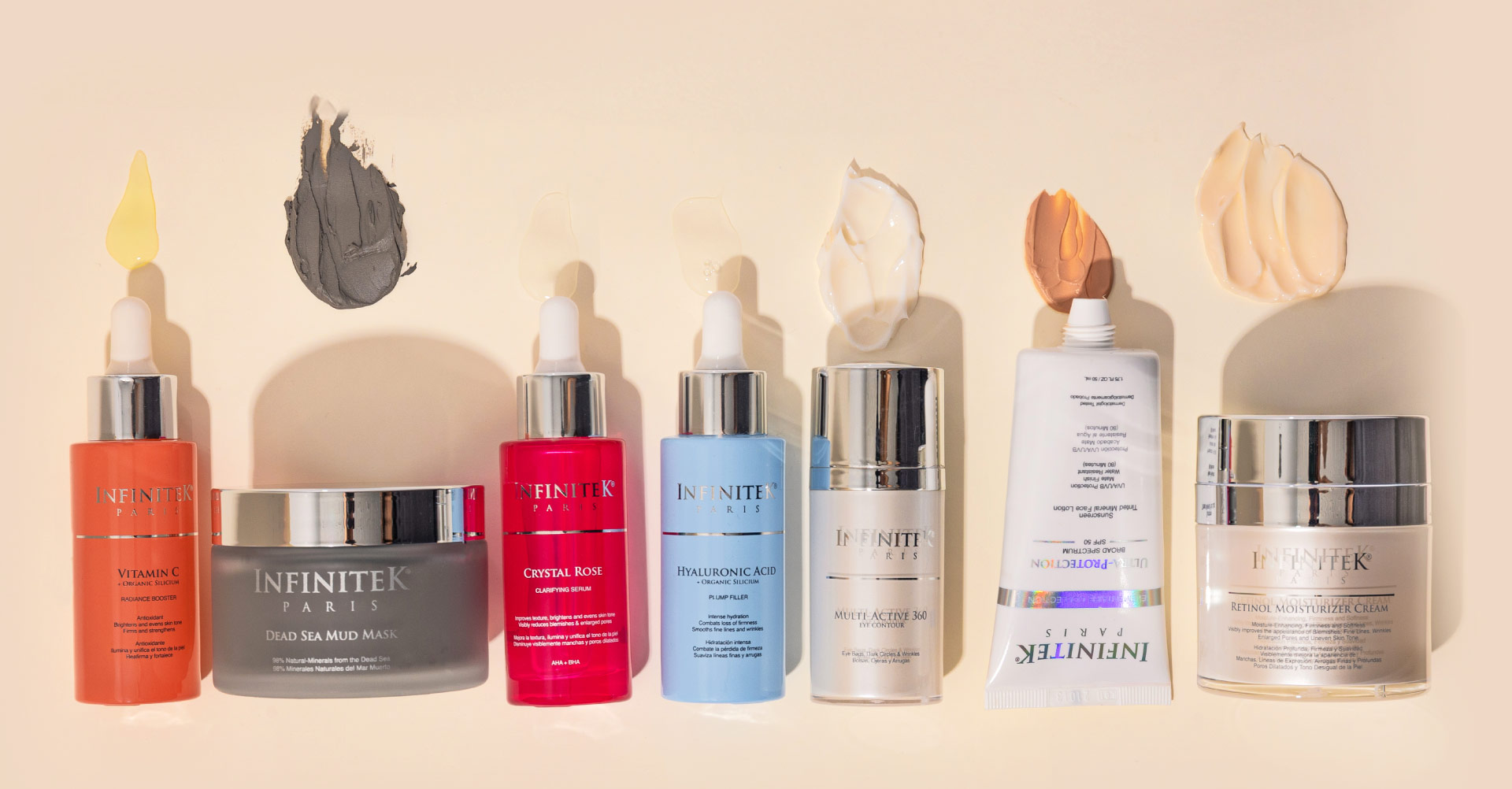
Myth or Reality. Discover 5 Myths About Vitamin C
The quest for a perfect, and radiant skin is a journey that many people embark on with enthusiasm. In this journey to achieve a dream skin, an invaluable ally is the Vitamin C. This powerful antioxidant provides an instant glow and provides the skin with long-term benefits.
Vitamin C is a star product in the skincare world thanks to its multiple benefits that leave skin radiant and luminous. As a potent antioxidant, it neutralizes free radicals that damage cells and cause premature aging. Additionally, vitamin C is essential for overall health, playing a crucial role in strengthening the immune system and enhancing the skin condition by stimulating collagen production, which maintains the skin’s flexibility and firmness.
On the other hand, this nutritional component has anti-inflammatory properties that can help reduce inflammation associated with acne and other skin conditions. Integrating vitamin C into our daily skincare routine not only helps to soothe the skin but also acts as a preventative measure against possible future breakouts. Vitamin C is not just a component in your skincare routine; it is an essential ally for tissue development and repair.
We are aware that there are some myths that you have probably already heard. Well, stay tuned because today we are here to tell you how true they are.

“If you spend a lot of time in the sun, it’s better to avoid using vitamin C because it stains the skin.”
False, as we mentioned vitamin C is an antioxidant that allows us to neutralize the damage generated by free radicals that over time become responsible for the aging process of the skin. For this reason, it is ideal to use it in your AM routine, as it helps to fight the damage caused by UV rays.
It should be noted that vitamin C can inhibit melanin production, helping to reduce hyperpigmentation, dark spots, and discolorations, leaving the skin with a more even tone and a smooth texture. This does not mean it replaces sunscreen, so we recommend using both to complement your skincare routine.
“Higher concentration means greater results”
False. Studies suggest that even lower concentrations of vitamin C can provide significant benefits for the skin. It is not always necessary to use products with high concentrations. Concentrations above 20% can have an oxidative effect, which is the opposite of what we want. The most effective concentration range of vitamin C for anti-aging effects is between 5% and 15%.

“Vitamin C is suitable for all skin types.”
True. Due to its actions on the skin, vitamin C is suitable for all skin types: oily, normal, dry, or combination. However, it is important to know that pure vitamin C is an acid, so very sensitive or intolerant skin types may feel some stinging or irritation upon application. This sensation can be alleviated by spacing out applications until the skin gets used to it.
“Vitamin C only benefits more mature skins.”
False. By stimulating the synthesis of collagen and elastin and counteracting the action of free radicals, vitamin C improves skin radiance and prevents the appearance of the first signs of aging. This means its usefulness extends to young people, starting from their 20s, providing them with an immediate glow and long-term benefits. It’s never too early to start caring for your skin’s health.

“Vitamin C eliminates wrinkles completely.”
Vitamin C can help reduce the appearance of wrinkles by stimulating collagen production and acting as an antioxidant. However, it cannot eliminate wrinkles completely.
“Vitamin C does not penetrate the deeper layers of the skin.”
False. Scientific research has debunked this claim, showing that vitamin C can penetrate beyond the superficial layers, reaching both the epidermis and the dermis, providing antioxidant benefits at different levels. It has been revealed that it helps significantly with the reduction of acne marks, age-blemishes, and discoloration.
Its ability to reach the dermis means it can directly influence cell regeneration, promoting healing and significantly reducing scars and residual marks caused by acne.
“Vitamin C cannot be used with other active ingredients.”
False. The mistaken belief that vitamin C should not be mixed with other ingredients has been debunked by numerous studies and dermatology experts; In reality, it is compatible with hyaluronic acid and vitamin E, which is one of its best allies. Both vitamins offer more comprehensive protection against free radicals and oxidative stress.
Vitamin E helps stabilize vitamin C, prolonging its effectiveness and ensuring that the two work in harmony to protect the skin from environmental damage, compatible with many other ingredients, such as vitamin E and hyaluronic acid. In fact, in some cases, the combination of these ingredients can enhance their benefits.
“Vitamin C is only effective in its pure form and not in derivatives.”
Contrary to the widespread belief that only vitamin C in its pure form is effective in skin care, the reality is that derivatives of this vitamin can also offer remarkable skin benefits. Among these derivatives are sodium ascorbate and magnesium ascorbyl phosphate, compounds that have gained recognition in the world of dermatology and cosmetics.

Now you know! Share this blog with others to leave behind the myths about vitamin C and encourage them to include it in their skincare routine, as it will bring many benefits to their skin. If you want to read more similar articles and learn about skincare, we recommend you to visit our blog category.



